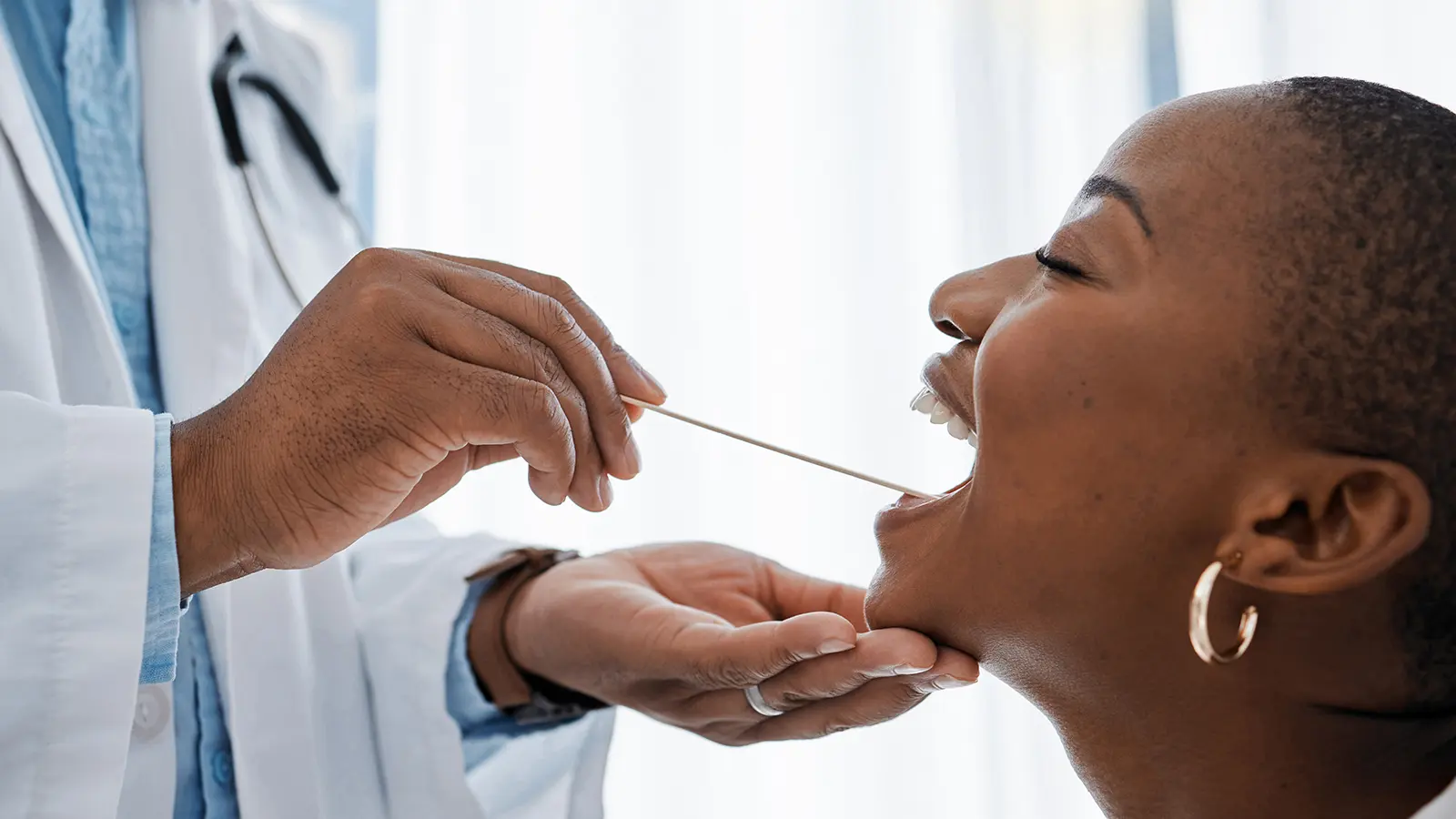Reviewed By Dr. Jeffery Kesecker, DDS
Reading Time: 3 minutes
Most people think of dental visits as a way to keep their teeth clean and healthy. But routine exams also include screenings for oral cancer—a disease that is becoming more common due to rising rates of HPV-related infections.
Early detection is often the key to simpler treatment and better outcomes. This is why your dentist or oral surgeon checks for subtle changes in your mouth and throat, even when you have no symptoms.
In this blog, we will explain how HPV increases the risk of oral cancer, what happens during a screening, and why regular checkups matter more than ever.
Table of Contents
Legacy Surgery provides comprehensive oral and maxillofacial care in Harrisonburg and Staunton, VA.
Key Takeaway
HPV is now the leading cause of oropharyngeal cancers, often developing without early symptoms. Regular screenings with your dentist or oral surgeon help detect changes early, supporting simpler treatment and better long-term health.
HPV: A Leading Cause of Oral Cancer Today
Years ago, most oral cancers were linked to smoking or heavy drinking. Today, human papillomavirus (HPV) has become the most common cause of cancers in the mouth and throat.
HPV-related cancers often develop in the back of the throat, base of the tongue, or tonsils—areas that are nearly impossible to see on your own. Many people have no symptoms in the early stages, which is why regular screenings are so important.
What Is HPV?
Human papillomavirus (HPV) is a very common virus. There are more than 100 types of HPV, and most people will come into contact with it at some point in their lives.
HPV spreads through close or intimate contact. In many cases, the body clears the infection naturally within a year or two, and it causes no lasting harm.
However, some high-risk strains can remain in the body and lead to cancer over time. In the mouth and throat, HPV infections can cause changes in the cells that eventually become cancerous.
According to the CDC, HPV is responsible for about 70% of oropharyngeal cancers in the United States. Because these cancers often develop without early symptoms, many people have no idea they are at risk. Regular screenings help detect any changes early, when treatment is most effective.
Why Routine Screenings Matter
You may feel completely healthy, but HPV-related cancers can grow quietly for years before causing noticeable problems. A routine screening is a simple, painless way to look for small changes early.
Your dentist or oral surgeon is trained to spot signs that could need follow-up, such as:
- Red or white patches that do not go away
- Persistent sore throat or hoarseness
- Lumps or swelling in the neck or throat
- Trouble swallowing
If something unusual is found, you may be referred to an ear, nose, and throat (ENT) specialist or an oral surgeon for further evaluation and guidance.
What to Expect During a Screening
You do not need to prepare in any special way. Here is what typically happens:
- A thorough look at your lips, cheeks, tongue, and throat
- Gentle feeling of your neck and jaw to check for any lumps or swelling
- Use of a small light or mirror to see areas in the back of your mouth more clearly
The Role of Oral Surgeons in Screening
Oral surgeons are often the first to notice early signs of oral cancer, especially if you are seeing them for other procedures like dental implants, wisdom teeth removal, or full mouth rehabilitation. During any consultation, your surgeon will examine your mouth and throat closely and discuss any findings or concerns with you.
If an area of concern is found, an oral surgeon can perform a biopsy to collect a small tissue sample for testing. Some patients choose to have the biopsy done privately in our office, while others prefer to see an ENT specialist if insurance coverage is a factor.
No matter which option you choose, our team will guide you through the next steps and help you feel supported and informed.
Early Detection Makes a Difference
Most changes in your mouth will turn out to be harmless. But catching any early warning signs means simpler treatment and better outcomes if something more serious is found. Even if no concerns are detected, you will have peace of mind knowing you were checked.
Oral cancer screenings are a simple step that helps protect your long-term health. If it has been a while since your last dental appointment or if you have noticed any unusual changes, this is a good time to get checked.
Take Care of Your Smile With Legacy Surgery in Harrisonburg, VA
Legacy Surgery provides specialty care, including dental implants, wisdom teeth removal, and evaluations for conditions affecting the mouth, jaws, and face. Whether you are planning treatment or have questions about your oral health, our team is here to help you feel informed and supported.
To book an appointment at our Harrisonburg location, call (540) 437-1230 or visit us at 2071 Pro Pointe Lane, Harrisonburg, VA.
📍Other location
(540) 213-8750

